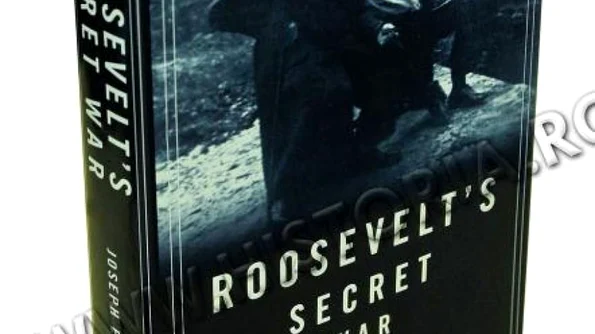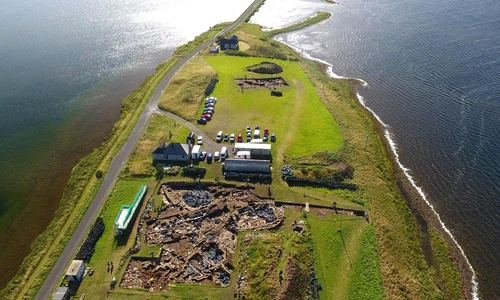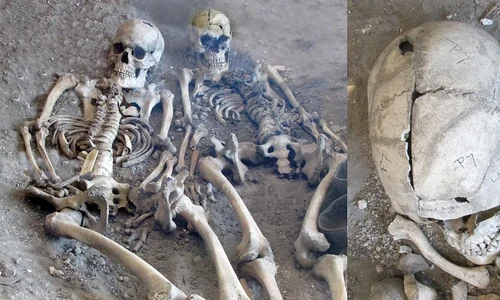
The Best Kept Secrets of the WW2
“The German domination is necessary, in order to supply Berlin with Polish coal and agricultural products. Whereas Hungary and Romania are concerned, they undoubtedly belong to Germany’s vital space.” Adolf Hitler
The subject matter of this review is Joseph E. Persico’s book released by the New York Publishing House Random House called “Roosevelt’s Secret War – FDR and WW2 Espionage “.
The ex-State Secretary Colin Powell said about the book that “Just when we thought that there is nothing more to discover about the President Franklin Roosevelt, Joe Persico found out something completely new:FDR’s involvement in the WW2 espionage. I started reading this book, because its author was a friend and a colleague, but once I opened it, I couldn’t let it go!”
The Pearl Harbour Attack was not a surprise
This new book published by Persico is very popular with audiences of every political orientation, because it brings to the light unknown facts about FDR and his time. For instance, the author demolishes the myth that the Japanese attack on Pearl Harbour surprised the White House.
The author demonstrates on page 151 that FDR and the FBI director Edgar Hoover possessed solid proof of the Japanese preparations for the attack on the naval base at Pearl Harbour. The double agent Dusko Popov provided them with these documents, yet Hoover disliked him to the point of repulsion. This personal feeling combined with a superficial manipulation of the spy’s documents led to a criminal act:neither FDR nor the members of the Cabinet were informed. However, this incident did not relieve FDR of the responsibility of the killing and injuring of 2.403 and 1.178 Americans at Pearl Harbour respectively.
At the same time, apart from the information possessed by the FBI, Roosevelt was reading the Japanese Government’s cyphered telegrams sent to its ambassadors in Washington and Berlin. FDR was able to do so, because the American Military Navy managed to break the foreign Japanese communication code.
Throughout the war, the American President read the correspondence between Tokyo and its ambassador to Berlin, general Oshima. Hitler regularly talked to Oshima ignoring the other Axis ambassadors to Berlin. This way, the White House found out about Hitler’s decision to attack the USSR when the Barbarossa Plan was not even finished.
The author of the book convincingly demonstrates that FDR kept secret the imminent Japanese attack on Pearl Harbour. Roosevelt needed such an act of war, in order to determine the US to relinquish its isolationist state and its overt hostility towards the European war that began on September, 1st, 1939.
The Americans reacted to the Pearl Harbour disaster as one! The rest is history. After having lunch with FDR, Adolf Berle, a jurist close to Roosevelt wrote in his personal diary that “FDR says that he would not be too upset, if the Russians took a significantly bigger territory;they could take the Baltic Republics, eastern Poland and perhaps Bukovina and Bessarabia.” (p. 195)
However, these territorial concessions represented a flagrant violation of the principle of self-determination of nations which was publicly acknowledged by the US President at the signing of the Atlantic Charter. On June, 10th, 1940, Roosevelt publicly declared:“The USA will offer to those who oppose brute force the material resources of this nation”. These were fair words, yet the Nazis ignored them. They possessed an army of 6, 8 million, whereas the Americans had at the time only 504.000 soldiers – a number smaller than the Swiss army.
Would Romania have fared better under German rule?
This book reveals the actual content of the underground peace negotiations between the USSR and Nazi Germany during the WW2. At the time of the Battle of Stalingrad, Hitler’s ambassador to Sweden, Prince of Wied, sent a peace proposal to Moscow. Moreover, the German ambassador to Turkey, von Papen, sent to Berlin a Soviet peace proposal in May, 1943.
The essence of the Soviet proposal was that “Germany could take half of the Baltic Countries from North-Eastern Prussia;Poland should be divided according to the 1939 borders;USSR would request the entire coast to the Black Sea, including the mouth of the Danube and would continue this way to Constantinople and Thessaloniki as well as a port on the Adriatic Sea.” (p. 326)
The Nazi leadership received, analysed and debated Stalin’s proposals. It is fascinating to read the result:“Ribbentrop and Goebbels were in favour of the proposals, whilst Himmler and Hitler were against them. Although he was defeated at Stalingrad, Hitler convinced himself that the Russian reserves were exhausted and the Eastern Front would be stabilized.” (p. 327). Had Stalin’s peace conditions been accepted, Romania would have remained in the German sphere of influence instead of becoming a Soviet communist colony. The natural question that arises is:would have Romania’s situation improved under German rule or not?A relevant clue in this regard is offered by Austria – it managed to avoid the occupation of the USSR.
Roosevelt kept his calm, even though his spies provided him with 17 pages about the Soviet-German negotiations. These proved that the USSR was ready to betray its Western Allies. However, after the meeting with Stalin at Tehran, FDR thought he could not only cooperate with the Soviet leader, but also trust him. Moreover, the constant German retreat in front of Red Army’s 360 divisions convinced Roosevelt that the Soviets preferred to destroy Hitler than to negotiate with him. His thinking proved to be correct.
Thousands of Soviets infiltrated in the American espionage
The Office of Strategic Services (OSS) was founded on June, 13th, 1942 and it was the first foreign espionage service of the US. First director of the OSS was the lawyer William J “Wild Bill” Donovan (1883-1959) who was FDR’s colleague at the Harvard University. Donovan fought in Europe in the WW1 and was decorated by the Congress with the Medal of Honour. In 1924, he became Edgar Hoover’s superior at the US Department of Justice. The American military espionage chiefs perceived the OSS as a “group of rich men, footballers, playboys, petty thieves and house burglars.” (p. 424)
After the Cold War and especially after the fall of the USSR, the Soviet spies’ deciphered correspondence revealed that the Soviet agents infiltrated in the OSS were in a greater number than was originally believed. The author of the book offers the example of Duncan Lee, an Oxford and Harvard educated lawyer, which was brought in by Donovan as assistant to the director of the OSS. Lee’s office was inside Donovan’s secretariat which meant that he was privy to everything that happened in the OSS. For two years, Lee copied and sent to Moscow every document received by the OSS from the White House and vice versa.
84.000 messages deciphered monthly
President Roosevelt is described in this book as a duplicitous man. He tended to like more melodramatic actions and spies rather than electronic espionage (p. 61). From his office at the White House, he acted like an actual head of a spy network, even before the US officially entered the war. FDR recruited close collaborators such as very wealthy family friends like Vincent Astor and even his son, James Roosevelt, captain in the Marine Infantry Corps.
It is interesting to mention FDR’s work methods. He did not allow people to keep a notebook in his presence. The messages he sent from the White House used the cypher of the Regular Army, whereas the ones he received were in the cypher of the US Military Navy. FDR’s primary reading was the cyphered correspondence between the Japanese ambassador to the US and the Japanese Foreign Affairs Minister, Zosuke Matsuoka. Roosevelt was able to do so, since the Americans broke the “Purple” code used by the Japanese.
On the other side of the Atlantic, Winston Churchill’s priority was to read the Nazi cyphered telegrams. The British aided by the Polish managed to break the Nazi Enigma cypher machine. At the end of the war, there were almost 10.000 analysts engaged in this gigantic effort of deciphering. The analysts were deciphering 84.000 messages monthly.
The Americans shared with the British the secret of breaking the Japanese Purple code, yet the English did not reciprocate by revealing the German Enigma code. The reason of this was that the English broke the American code and thus, Churchill was reading every day not only German messages, but also American ones. “The English were spying on the Americans ever since the WW1 and it was something that Churchill could not risk revealing to his friend, FDR.” (p. 109)
The Swiss Banks and the German stolen gold
An interesting chapter of this book is the one about the Swiss bankers’ duplicity in handling transactions with the Nazi stolen gold. On July, 10th, 1944, Donovan informed the White House that an OSS-recruited high ranking Nazi reported that the president of the National Bank of Switzerland, a certain Weber, was secretly transactioning German gold of almost 40 million Swiss francs each month. However, publicly, the Swiss leadership was negotiating at the time the ceasing of transactions with German gold.
The operations meant in reality money laundering. Certain war material providers refused Germany’s payment in gold, because they correctly assumed that it was stolen. Yet, they accepted to be paid in Swiss francs. The Nazis stole the money from the Central Banks of France, Belgium, Holland and the other occupied countries.
The OSS intercepted telegrams revealed that the Irish ambassador to Italy informed his chiefs in Dublin about the new developments in Rome concerning the Jews. “The Jews in Rome were informed that unless they provided Germany with 50 kg of gold in 24 hours, 200 teenage Jews would be taken hostages in Germany.”(p. 317). The Irish ambassador revealed that the Vatican offered to help the Jews pay the gold, were they not able to do so in 24 hours.
Roosevelt discovered in the Japanese Government’s correspondence with its ambassador to Berlin that Tokyo had already decided to send to the Reich two tons of gold. Also, the documents revealed that the Japanese Military Navy had already made the necessary preparations, in order to transport the gold to Germany. The Nazis managed to acquire 200 million $ in gold coins in 1940 and during the war, they stocked 909 million $ worth of gold.
The Swiss were trying to exonerate themselves by claiming that the other neutral countries were doing business with the Germans. Franco’s Spain provided the Reich with 90% of its tungsten supply, whilst Sweden was selling great quantities of ball bearing to the Nazis. It did so during the time when the German bearing factories were heavily bombarded by the RAF.
Portugal and Turkey have to be added to this list. They provided Germany with wolfram and chromium ore respectively. Thus, Roosevelt’s decided that the US should buy all of these strategic materials so as to prevent the Nazis from getting to them. (p. 321)
Roosevelt was aided in his secret war against Japan by an unexpected actor – the Vatican. The great Japanese fleet commanders were Catholics and thus, they informed the Vatican about certain imminent actions. The following telegram is an example:“The Japanese launched at water a new war ship which has on board nine of the biggest cannons in the world. The vessel is under the command of the admiral Zanuchi who is Catholic.” (p. 399)
Churchill’s glasses
In the end, I would like to mention maybe the most interesting secret of this book:why were the German Jews not allowed to immigrate to the US during the Holocaust of the WW2, the worst period of their history?Since 1938, the director of the FBI, Edgar Hoover, had constantly warned FDR that the Nazis had infiltrated secret agents among the thousands of Jews who desperately emigrated from Germany. “This possibility shaped President Roosevelt’s policy which aimed to prevent spies from entering the US rather than helping the refugees emigrate to the US.” (p. 215)
In spite of these draconian measures, Hoover and his men were not able to prevent the Soviet agents from stealing the American atomic bomb. The difference is that those who copied the American atomic bomb were the Soviets and not the Nazis. Also, the author of the book reveals certain juicy details. Thus, Winston Churchill visited the American Capital on December, 22nd, 1941 and was accommodated at the White House.
While the British prime minister was there, the American White House valet Alonzo Fields remembers the instructions he received from Churchill about his daily needs:“Before breakfast, I have to have in my room a glass of cherry;before lunch, two glasses of Scotch Whisky;at dinner French champagne and before I go to bed, 90-year-old cognac.”(p. 157)















